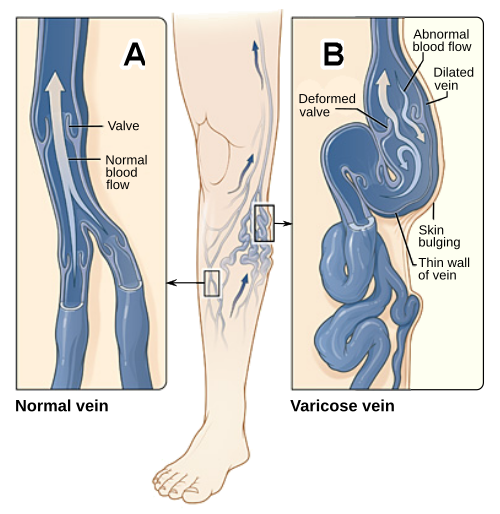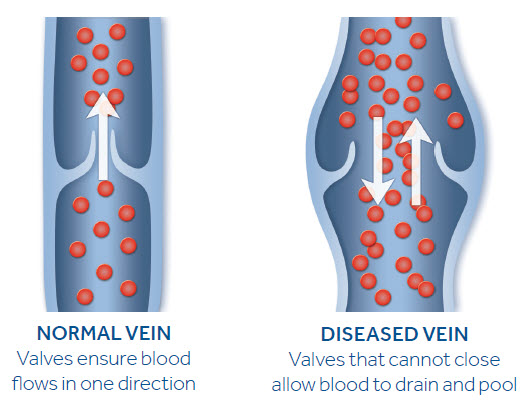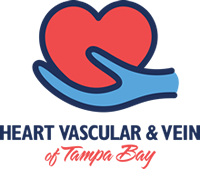Common Vein Diseases
Varicose Veins, Spider Veins and Other Venous Diseases
Vein disease is very common in the world. According to some research, almost 50 million people will develop some form of Vein Disease in the United States. This includes men and women.
Varicose veins and Spider Veins are often misunderstood as simply a cosmetic issue, but when left untreated, they can progress into a more serious condition called chronic venous insufficiency (CVI).
Veins are the vessels that return blood to the heart once it has circulated through the body whereas arteries carry oxygen-rich blood from the heart to the body). Veins have one-way valves that help keep blood flowing in the proper direction. If these valves malfunction, blood can flow backwards and pool in the veins, causing them to stretch.
The illustration on the right shows how a varicose vein forms in a leg. Figure A shows a normal vein with a working valve and normal blood flow. Figure B shows a varicose vein with a deformed valve, abnormal blood flow, and thin, stretched walls. The middle image shows where varicose veins might appear in a leg.
Healthy leg veins have valves that keep blood flowing to the heart. Vein disease develops when the valves stop working properly and allow blood to flow backward (i.e., reflux) and pool in the lower leg veins.
SIGNS & SYMPTOMS
- Varicose veins
- Aching or pain
- Swelling
- Cramping
- Heaviness or tiredness
- Itching
- Restlessness
- Skin changes
- Brown, colored skin
- Open sores or ulcers
RISK FACTORS
- Family history
- Lack of exercise
- Leg injury or trauma
- Prolonged sitting or standing
- Obesity or excess weight
- Current or previous pregnancies
- Smoking
TREATMENT
The goal of treatment for vein disease is to reduce or stop the backward flow of blood.
The following may be prescribed to treat your varicose veins. Your doctor can help you decide which treatment is best for you:
- Compression stockings
- Removing diseased vein
- Closing diseased vein (through thermal or non-thermal treatment)
With proper treatment, the progressive symptoms of vein disease are preventable.
Without treatment, signs and symptoms may progress and significantly impact quality of life, and lead to venous leg ulcers.
How varicose veins are formed

Jmarchn, modified from Varicose veins.jpg of National Heart Lung and Blood Institute (NIH) / CC BY-SA (https://creativecommons.org/licenses/by-sa/3.0)

Normal veins ensure blood flows in one direction. Diseased veins that cannot close allow blood to drain and pool.
